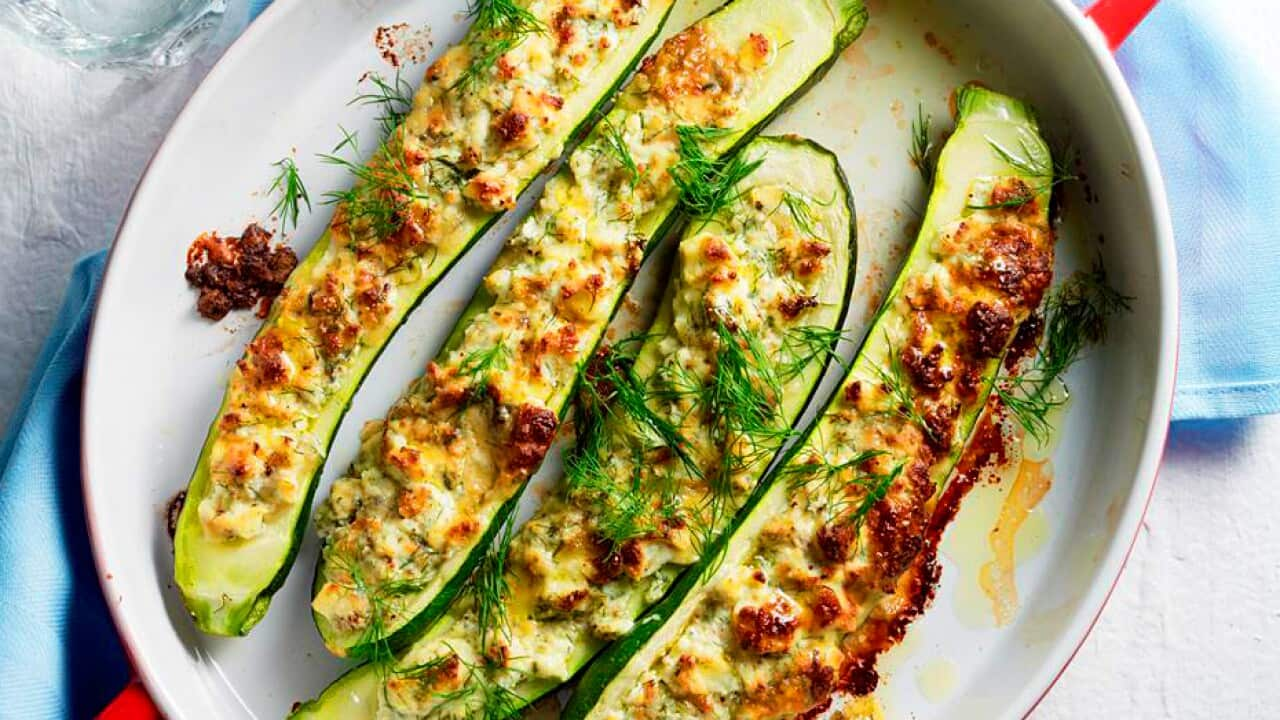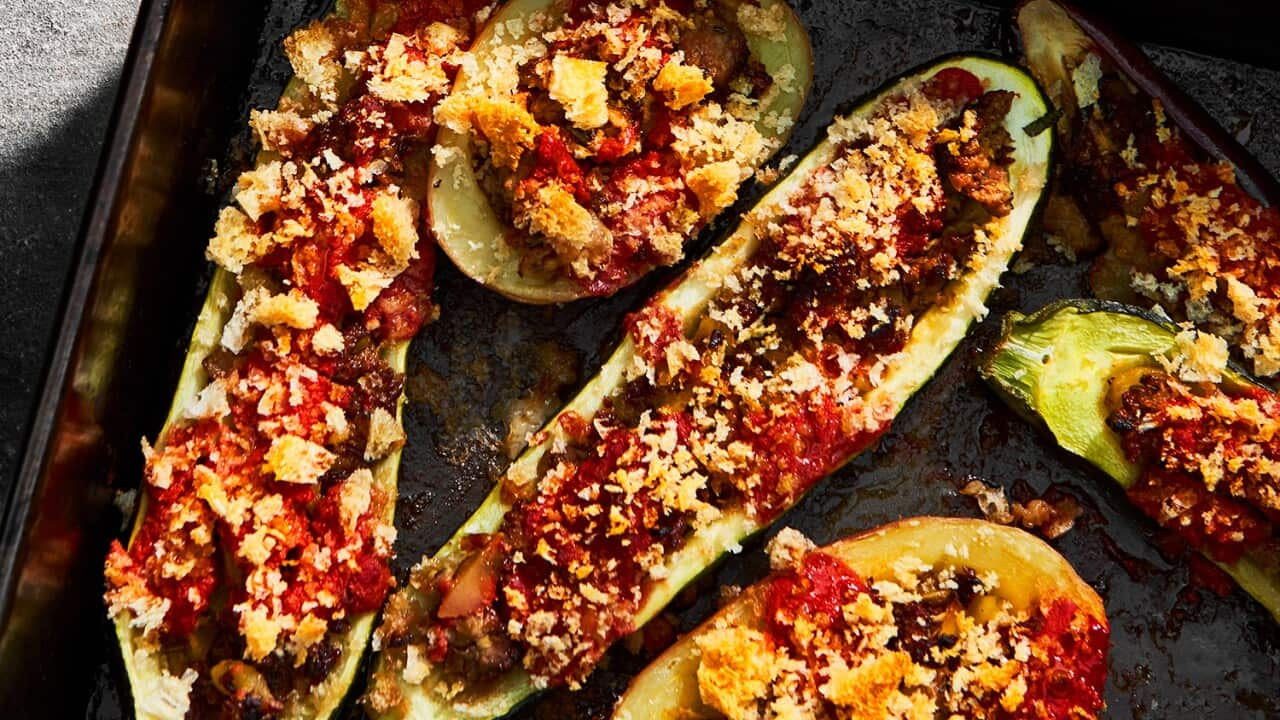Having your pantry and fridge stocked with a variety of nutrient-dense vegetables is essential when you’re in lockdown due to COVID-19 restrictions.
After all, eating a diet that’s rich in a diverse variety of vegetables is key to maximising your immunity. But how do you ensure your supply of vegetables stays good enough for long enough to eat?
Managing director of , Catherine Velisha, explains that although vegetables don’t last forever, there are simple things you can do to make them go further and last longer.
Stews and soups are very forgiving to vegetables that have been sitting in your fridge for a while and aren’t that crispy.
Cook low and slow
Slow cooking is a great way to make tasty soups and winter stews using vegetables that are a bit dated.
“You can never go wrong with a soup or stew, especially if the vegetables you use are getting closer to their use-by-date,” Velisha tells SBS. “Stews and soups are very forgiving to vegetables that have been sitting in your fridge for a while and aren’t that crispy.”
Velisha recalls how her grandmother used to make a simple bowl of green beans come alive with a slow-cooked stew. “My nanna used to cook beans in a tomato sauce with olive oil in the oven,” says Velisha whose grandparents on her dad’s side were Albanian and Cyprus Turkish.
"She would slow cook it so the beans would break down and be really soggy. In doing that, she made a plain bowl of boring beans became the main meal. There’s a kind of comfort to eating a stew and it’s very satisfying.”
Velisha says home cooks can turn any vegetable into a stew by adding passata and olive oil, and cooking them long and slow. “If that’s your default to make [older] vegetables go further, it’s a pretty good default to make your vegetables go further.”
Infuse flavour into older veg
Maximise the flavour of your vegetables, no matter how old or crisp they are, by cooking them just as you cook your meat. “Use salt, oil and heat to get a char on and caramelise your vegetables,” Velisha explains. “That’s when you start to really bring the flavours out.”
You can also add bits of bacon, anchovies or fish sauce to your vegetable dish to impart a meaty taste and a whole lot of flavour. “By doing that, you add a meaty depth to your dish and get a cost-effective meal that focuses on vegetables.”
Another tip is to roast vegetables whole to lock in their juices and flavours. Cooking with the whole vegetable also encourages you to use more of it and reduce food waste. “If you cook the whole broccoli, you get a different texture and flavour throughout its parts – you get leaves that crisp up differently, a core that is meaty and a rich flavour in the florets. That gives contrast and it's exciting.”
Buy vegetables that are in season
Not only are in-season vegetables often cheaper than those out of season, but winter vegetables are also very sturdy and last longer.
“Generally, in winter, plants grow slower but they also deteriorate slower. That’s why winter is a perfect time to get you’re a long shelf-life out of vegetables.”
Winter vegetables include cauliflower, cabbage, silverbeet, broccoli, broccolini, Brussels sprouts and kale.
Storage is key
Velisha reminds home cooks that different vegetables should be stored at different temperatures, to ensure they stay fresher for longer.
“For example, brassicas should be kept in the fridge as they hold up well. But cucumbers and zucchini like to be kept a little bit warmer, at around 11 degrees Celsius. While that temperature may be hard to achieve exactly, think about where you can put these vegetables in your fridge that’s a bit warmer. Perhaps near the door and not at the back of the fridge in a corner where it’s colder.”
Generally, in winter, plants grow slower but they also deteriorate slower. That’s why winter is a perfect time to get you’re a long shelf-life out of vegetables.
Flexible when following a recipe
Velisha believes that often, we waste good quality vegetables because we may be fixated on using a specific variety we don't have for a recipe.
“If you were planning to cook with a zucchini that day, but you only have eggplant or cauliflower, feel free to switch to a different vegetable and use what you have.”
She says there’s no need to worry that you’ll ruin the recipe because most vegetables have the ability to take on the flavour that surrounds them, making them very versatile.
“You can use a lot of different vegetables and get a similar outcome if you've achieved the flavours you want in your dish [through other means]. Don’t be scared to try different things.”








